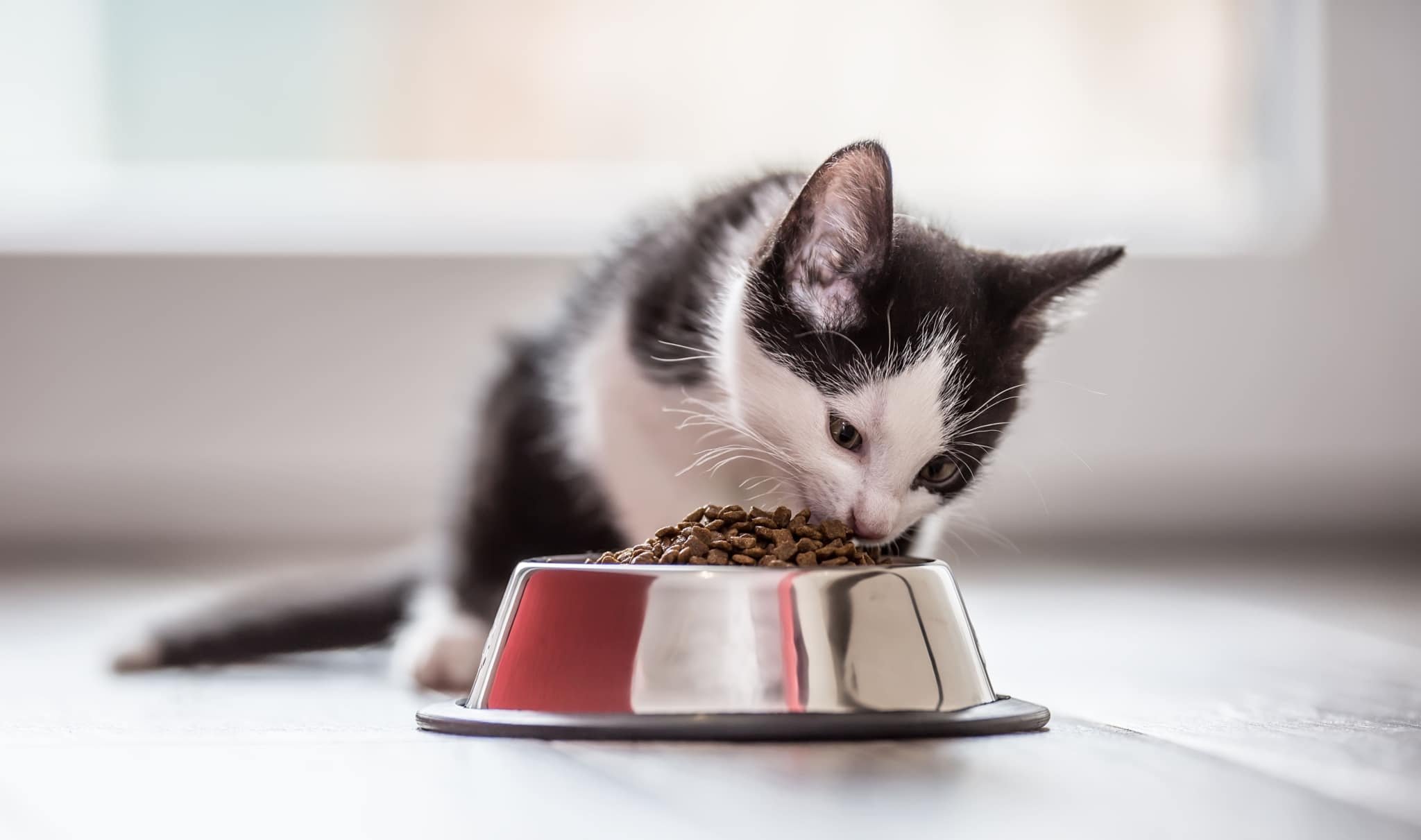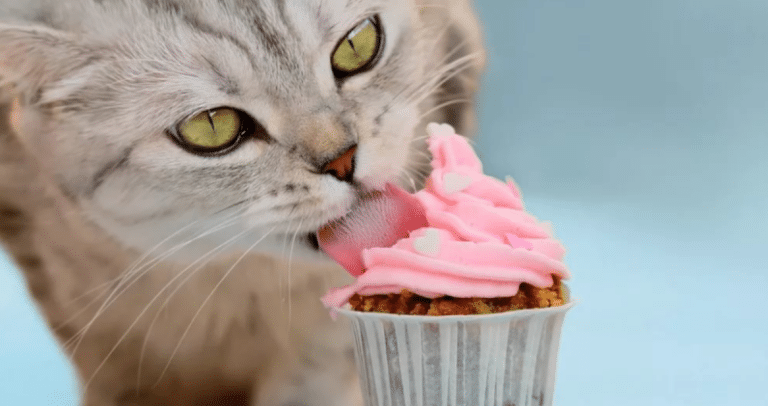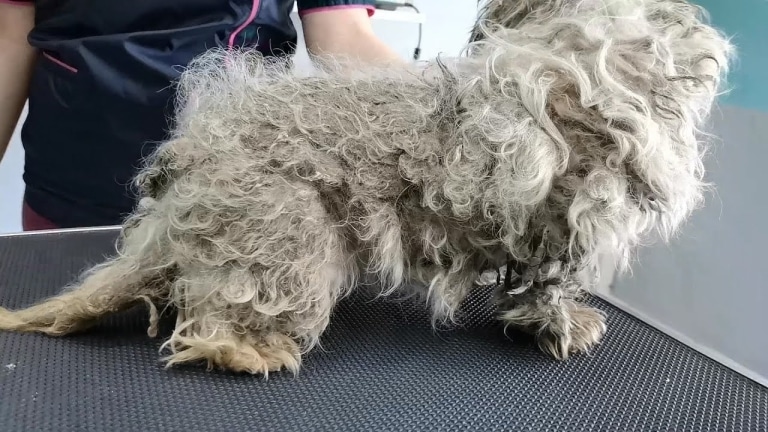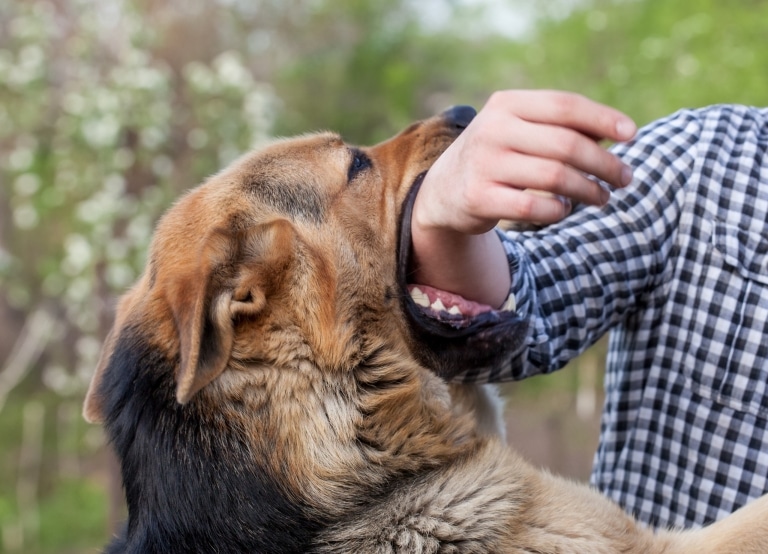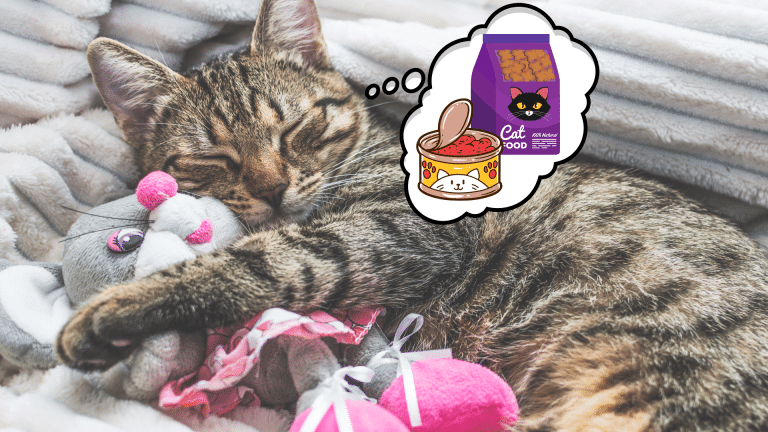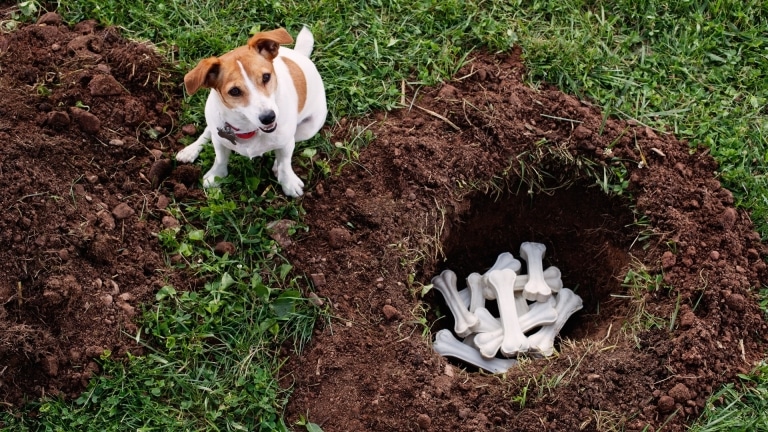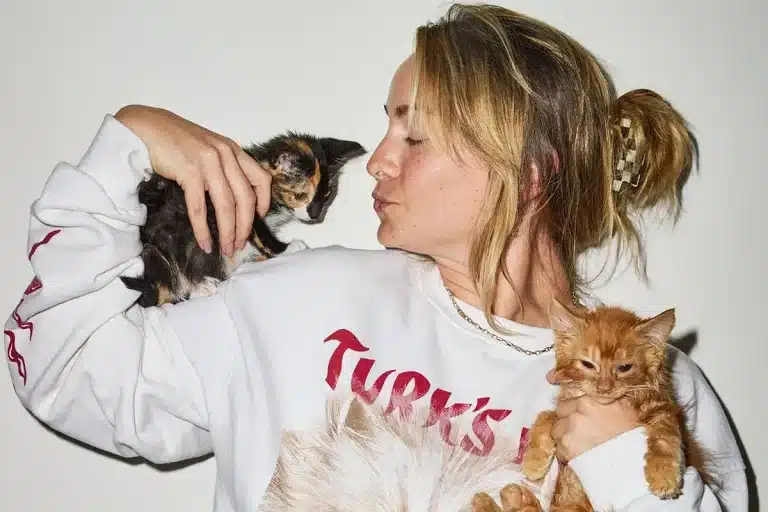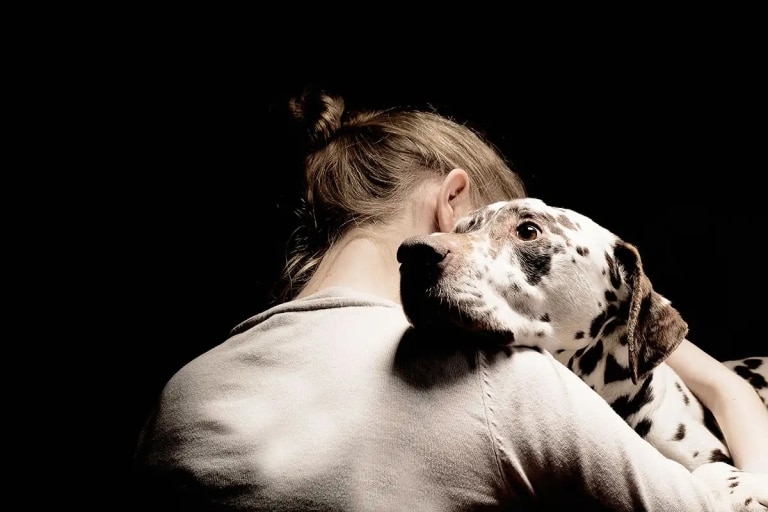How often do you find yourself thinking that you want to share something tasty with your cat, such as sweets? For humans, desserts are an enjoyable part of the diet, but when it comes to cats, sweets are not something they should be treated to. In this article, we will look at why sweets can be dangerous for them.
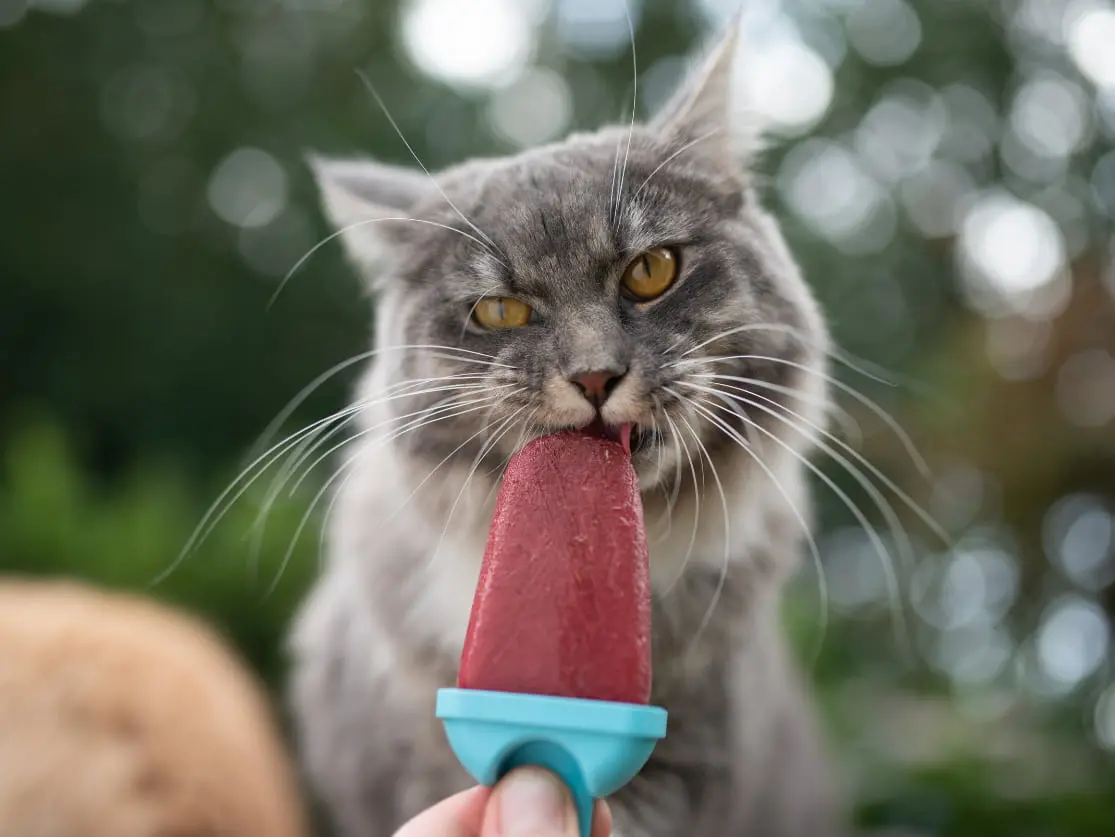
Products that can not be used by cats
Cats are true gourmets, but their gastronomic preferences are completely different from those of humans. Often, products that seem tasty and healthy to us can become a real health threat for cats.
For example, chocolate. It contains substances such as theobromine and caffeine, which are toxic to animals. Even a small amount of chocolate can cause serious symptoms, from vomiting and diarrhea to rapid heartbeat, seizures, and in the worst cases, even death. The darker the chocolate, the more harmful components it contains.
Another dangerous product is grapes (raisins). They are useful for humans, but can cause acute kidney failure in cats.
Although we often see cats with a bowl of milk in popular movies, in real life they cannot digest it properly. The reason is that as most cats age, the level of the enzyme lactase, which is needed to break down the lactose in milk, decreases. This can cause them diarrhea, bloating and general discomfort.
Another hidden enemy is raw dough. The yeast contained in it, upon entering the cat’s stomach, begins to ferment, forming gases and ethanol (alcohol), which can lead to bloating and alcohol poisoning.
Fatty and fried foods are also dangerous for cats. For example, donuts or other fried foods can cause pancreatitis – inflammation of the pancreas. This disease is accompanied by severe abdominal pain, vomiting, diarrhea and requires immediate consultation with a veterinarian.
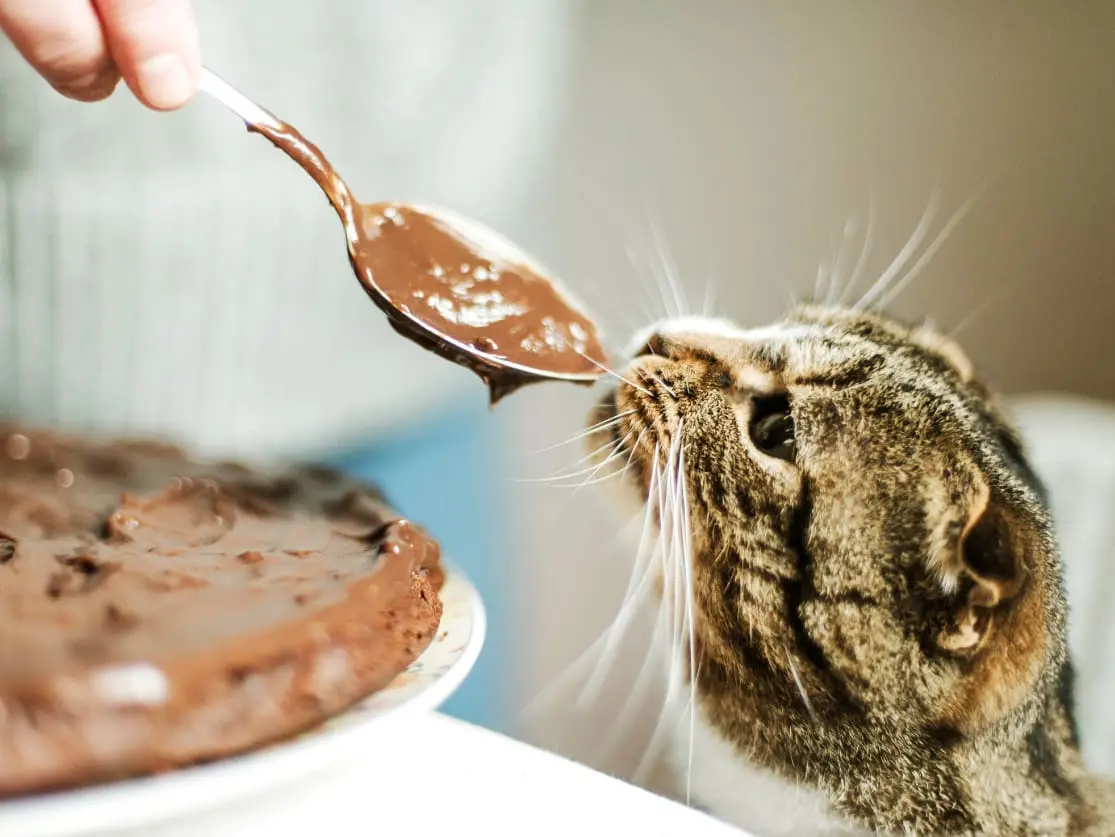
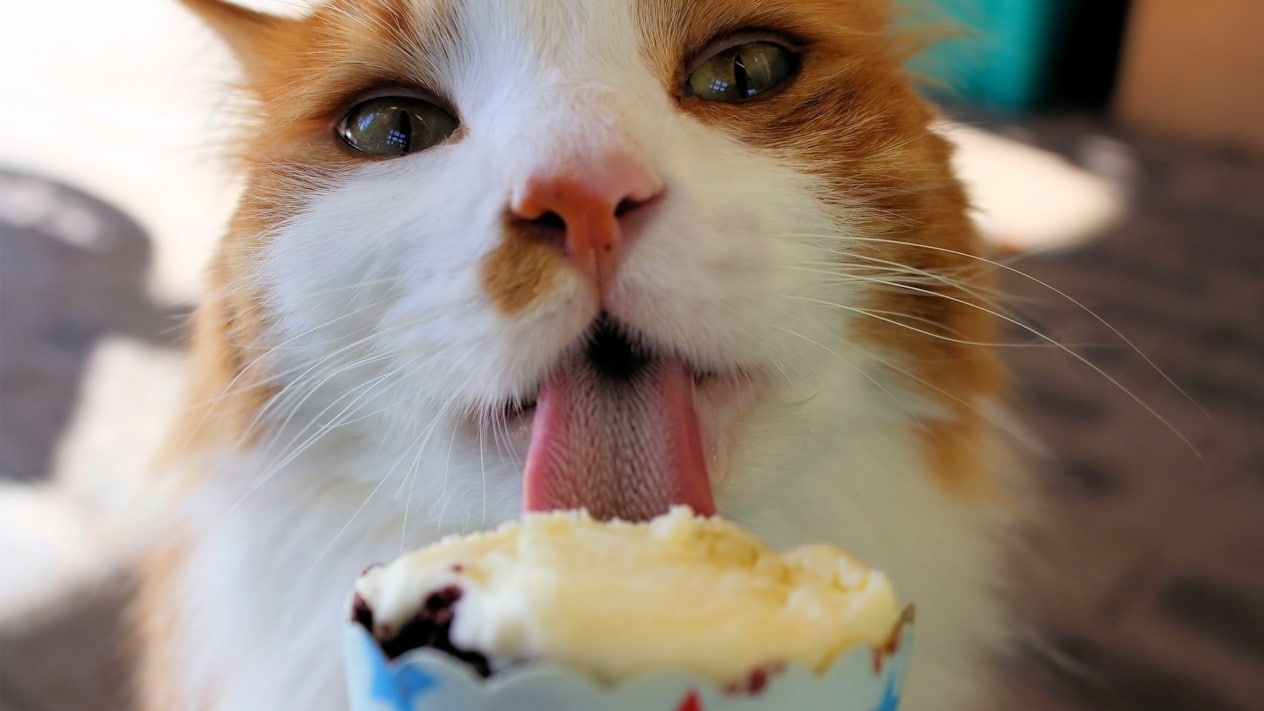
What are the consequences: what can sweets lead to for cats?
Adiposity
Obesity in cats often occurs due to an unhealthy diet, in particular, due to sweets. Many owners do not suspect that offering a piece of cake or candy to their pet can cause harm. The cat’s body is not designed to digest large amounts of carbohydrates and sugar. But the problem is not only that. Sweets contribute to rapid weight gain, and this is the first step to obesity. When you give your cat sweets, you are essentially adding empty calories to its diet. In addition, many sweets contain fats, which add even more calories, and over time the cat’s weight begins to increase rapidly. Being overweight can cause serious problems: heart disease, diabetes, metabolic disorders, and even problems with the musculoskeletal system.
Dental disease
Like humans, cats suffer from plaque and calculus. Sweets, even in small quantities, contribute to the multiplication of bacteria in the oral cavity. These bacteria feed on sugar and secrete acids that destroy tooth enamel. Over time, plaque builds up, which turns into tartar, which leads to diseases such as gingivitis and periodontitis. In addition, cats’ teeth are very sensitive, and any damage can cause pain and discomfort while eating. The cat may begin to avoid solid food. Also, sweets can cause bad breath in cats. This is one of the first signals that a pet has problems.
Diabetes
The sugar contained in sweets can disrupt metabolism. Unlike humans, cats don’t get their energy from carbohydrates, and when they consume too much sugar, it quickly raises blood glucose levels, causing the body to produce more insulin. Over time, the pancreas cannot withstand such a load, and diabetes develops as a result. Signs that your cat may have a blood sugar problem include constant thirst, frequent urination, weight loss despite a normal or increased appetite, and increased fatigue.
Urinary stone disease
Improper nutrition can be one of the reasons for the development of urolithiasis in cats. It can disrupt the balance of microflora in the urinary system and change the level of urine acidity. This creates favorable conditions for the formation of crystals in the bladder and kidneys, which can eventually turn into stones. Urinary stone disease is manifested by painful urination, frequent and fruitless attempts to go to the toilet, and sometimes even the presence of blood in the urine. In the most severe cases, a complete blockage of the urinary tract can occur, which is extremely dangerous for the animal’s life.
Poisoning
Although cats may be attracted to the flavor or texture of desserts, they do not derive any pleasure from them. Sweets are absolutely unsuitable for cats. In addition to sugar, which is undesirable in their diet, there are many ingredients that are dangerous for animals, such as xylitol. This popular sugar substitute can cause a sudden drop in blood sugar, leading to weakness, loss of coordination and even seizures. If your cat has accidentally eaten something sweet, you should be alert and know the main symptoms of poisoning: vomiting, diarrhea, increased salivation, tremors, convulsions, rapid heartbeat, lethargy or apathy. If you notice at least one of these symptoms, contact your veterinarian immediately.
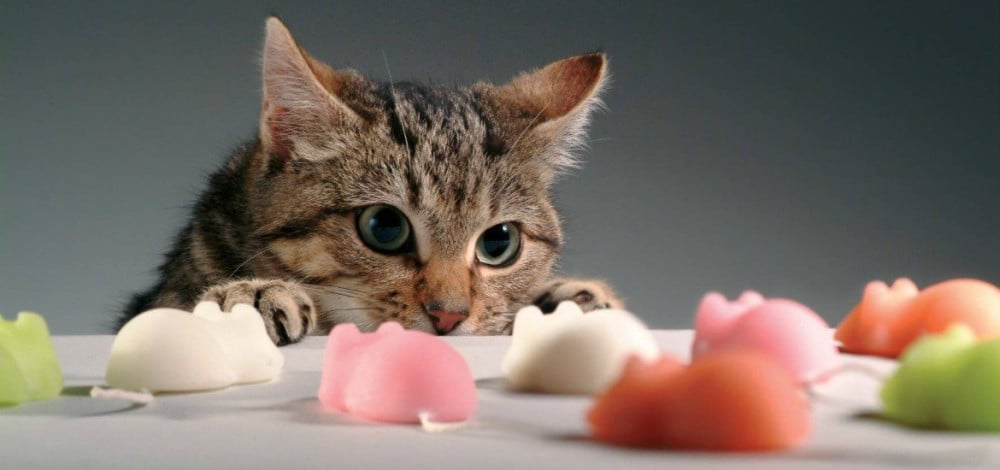
Conclusion: Be responsible hosts
As caring owners, we must be responsible for the nutrition of our pets, choosing only safe and healthy food. Instead of sweets, you can pamper the cat with pieces of cooked meat or special treats that take care of the teeth. It is especially important to monitor the diet if your pet is overweight or prone to obesity. Specialized food with a properly balanced content of proteins, fats and vitamins will help keep the cat in excellent shape.
In conclusion, sweets may seem like an innocent treat, but for cats it is a real enemy of health. Protect your cat from obesity and related problems by resisting the temptation to share dessert. The health of the cat is in your hands, and it is much more important than a few seconds of pleasure!

